
Since ancient times, it has been said that hair is "life" for women.Conditions for a beautiful woman in the Heian periodis in addition to the plump face and slitted eyes of the servant,Long, dark, rich, shiny hair was one of them.It is well known that
Hair is also important to people today, as it is said that a change in hair quality, hairstyle, or hair color can completely change a person's impression. Of course, not only women but also many men, especially older men, are concerned about the thickness and quantity of their hair.
that (something or someone distant from the speaker, close to the listener)The only god said to protect hair in Japan is located in Saga Arashiyama.Built at the foot of Mt. Ogura, known for its 100 poemsMikami ShrineBut that's it.
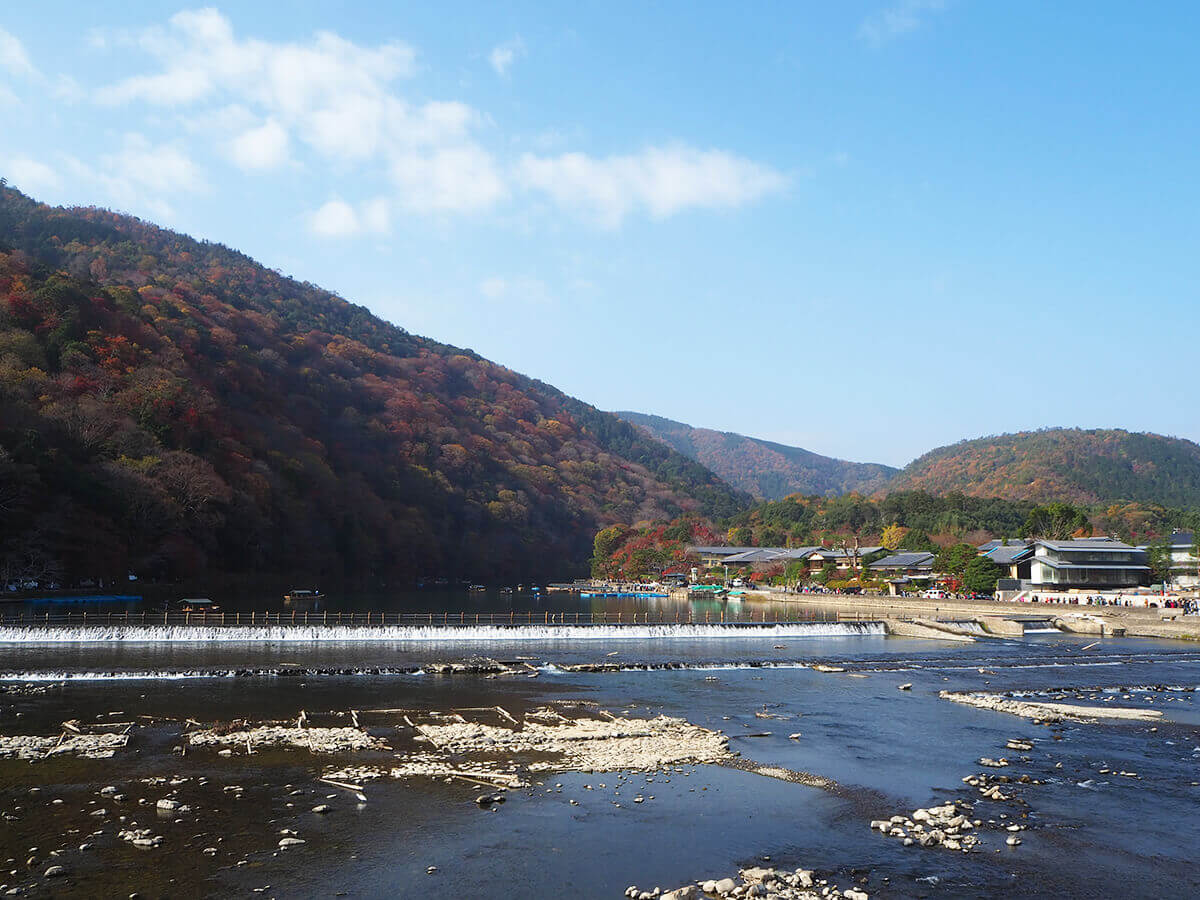
View of Mt. Ogura on the right from the Togetsu Bridge
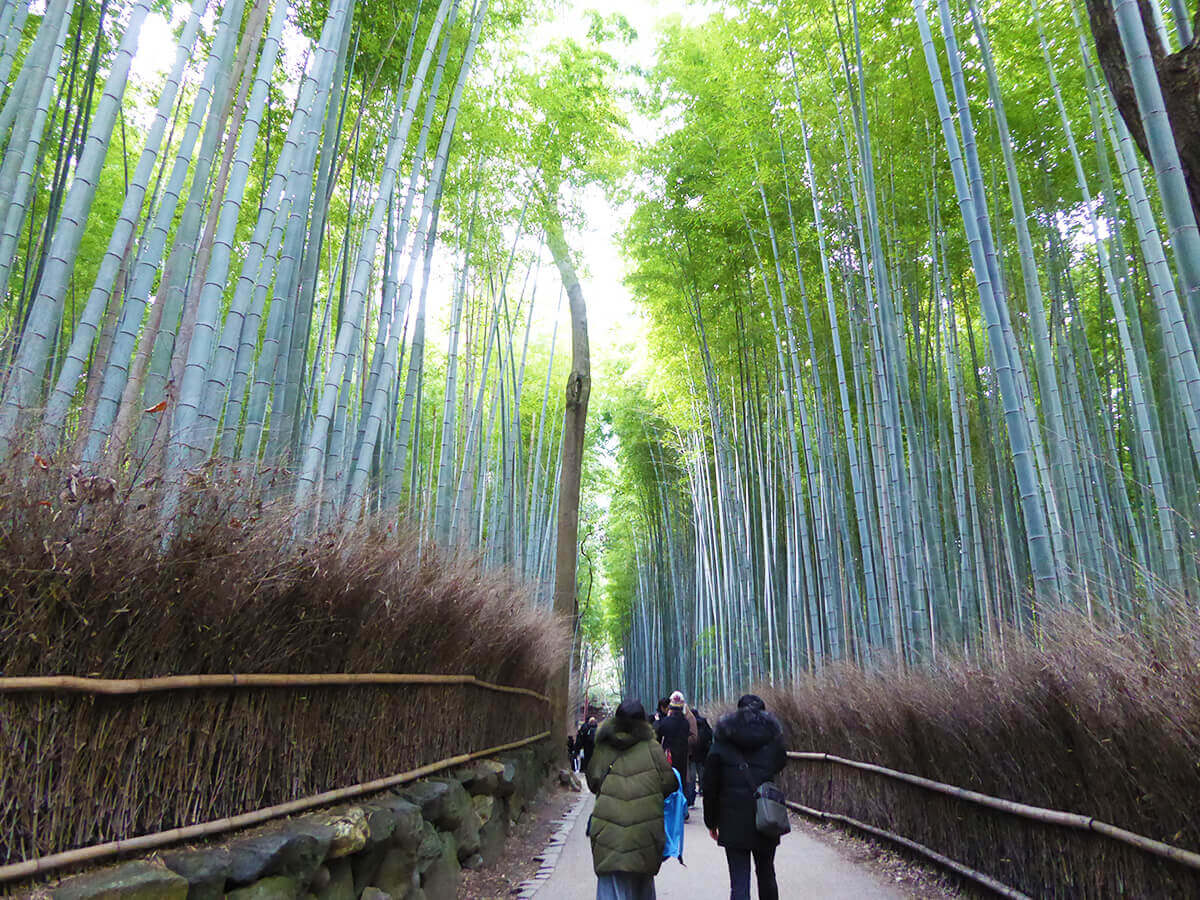
Passing through the bamboo path in Sagano to the Mikage Shrine
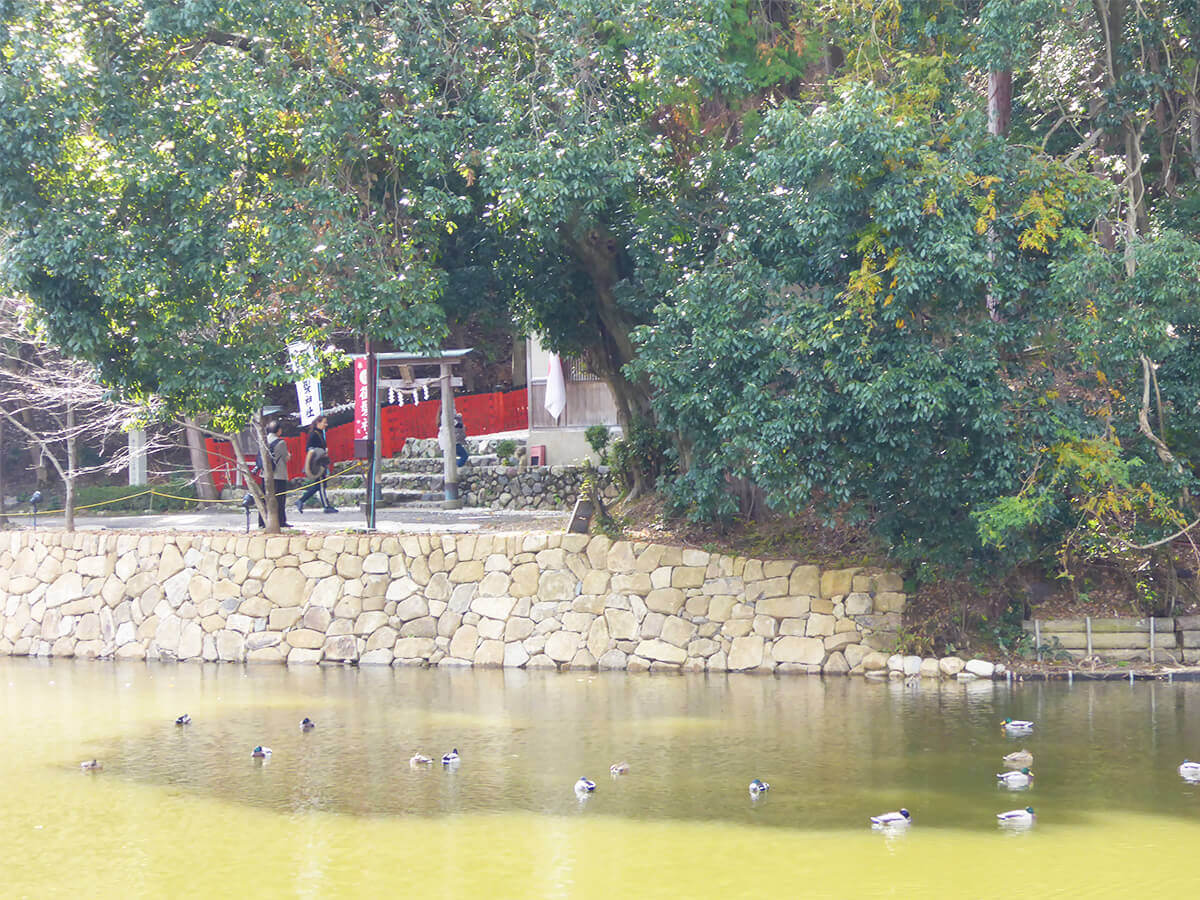
Mikage Shrine can be seen at the back of Ogura Pond.
This cozy shrine, located on the west side of Ogura Pond, was built in 1961 by a Kyoto barber and hairdresser near Emperor Kameyama's mausoleum.
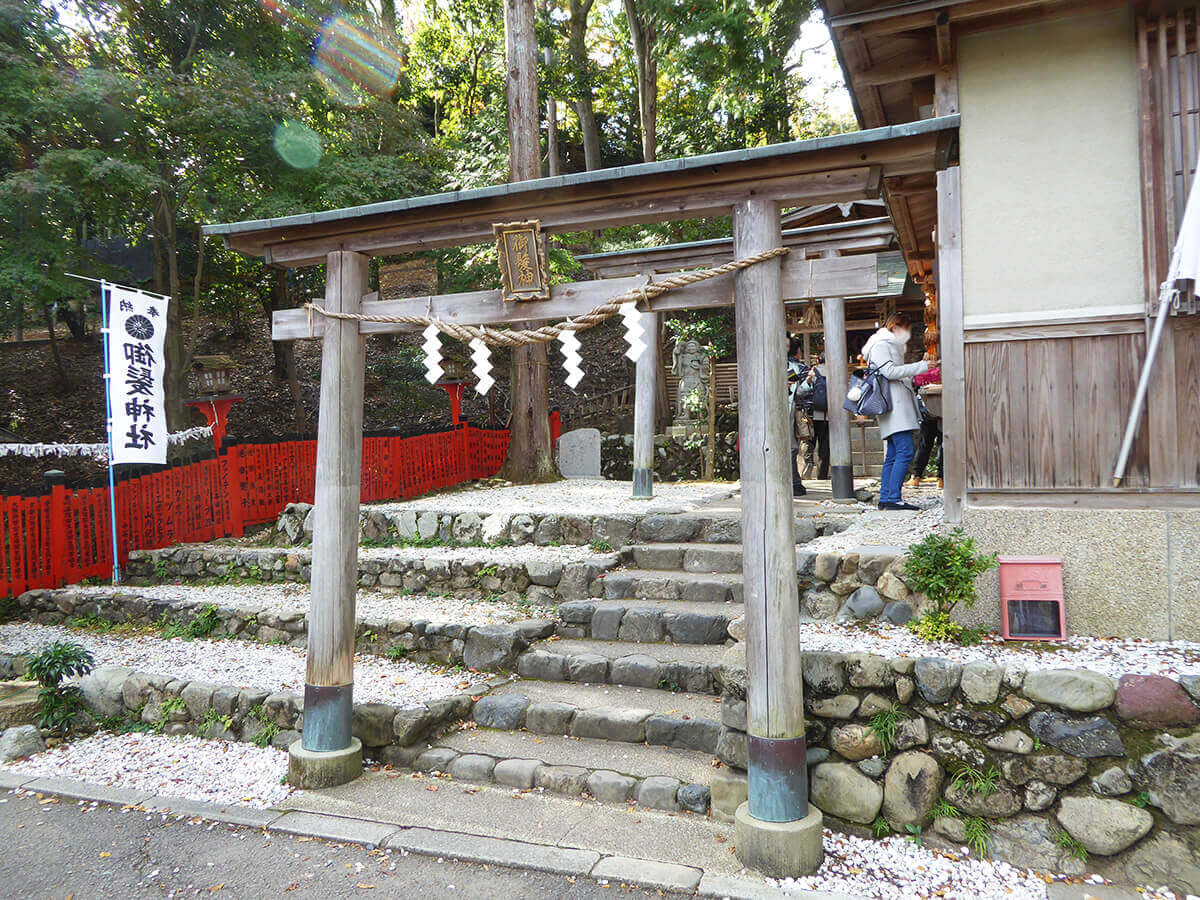
Gohage Shrine. Rainbow-colored orb in the upper left!
(A rainbow orb is also known as a "sign of happiness.)
The shrine enshrines Fujiwara no Uneme no Sake Masayuki, who is said to be the founder of hair dressing.Masayuki was a hairdresser active in the Kamakura period (1192-1333), who left the following episode to the present day.
The reign of Emperor Kameyama (1259-1274). Masayuki's father, who was guarding the treasures of the imperial palace, lost his treasured sword "Kuo-Maru. Masayuki accompanied his father on a trip to search for it, and in order to earn a living, he helped his father by doing the hair of the village headman's women, which is said to have been the origin of the hair dressing profession. The shrine is still revered by people in the hairdressing and beauty industry,Until the early Showa period (1926-1989), barbers and hair stylists across the country were closed on the anniversary of Masayuki's death every month.It is.
In recent years, Gohage Shrine has been visited not only by people in the barbershop and beauty industry, but also by many other visitors. Many of the ema (votive picture tablet) votive tablets dedicated to the shrine are filled with earnest wishes, such as "May my hair grow back. At the shrine, visitors pay a 300-yen hair donation fee to have a priest cut off a small portion of their hair, place it in an offering bag, and deposit it in the "hair mound" on the shrine's grounds,In addition to praying for the health and happiness of your hair and body, your hair will be permanently protected in a mound of hair.That's what he said.
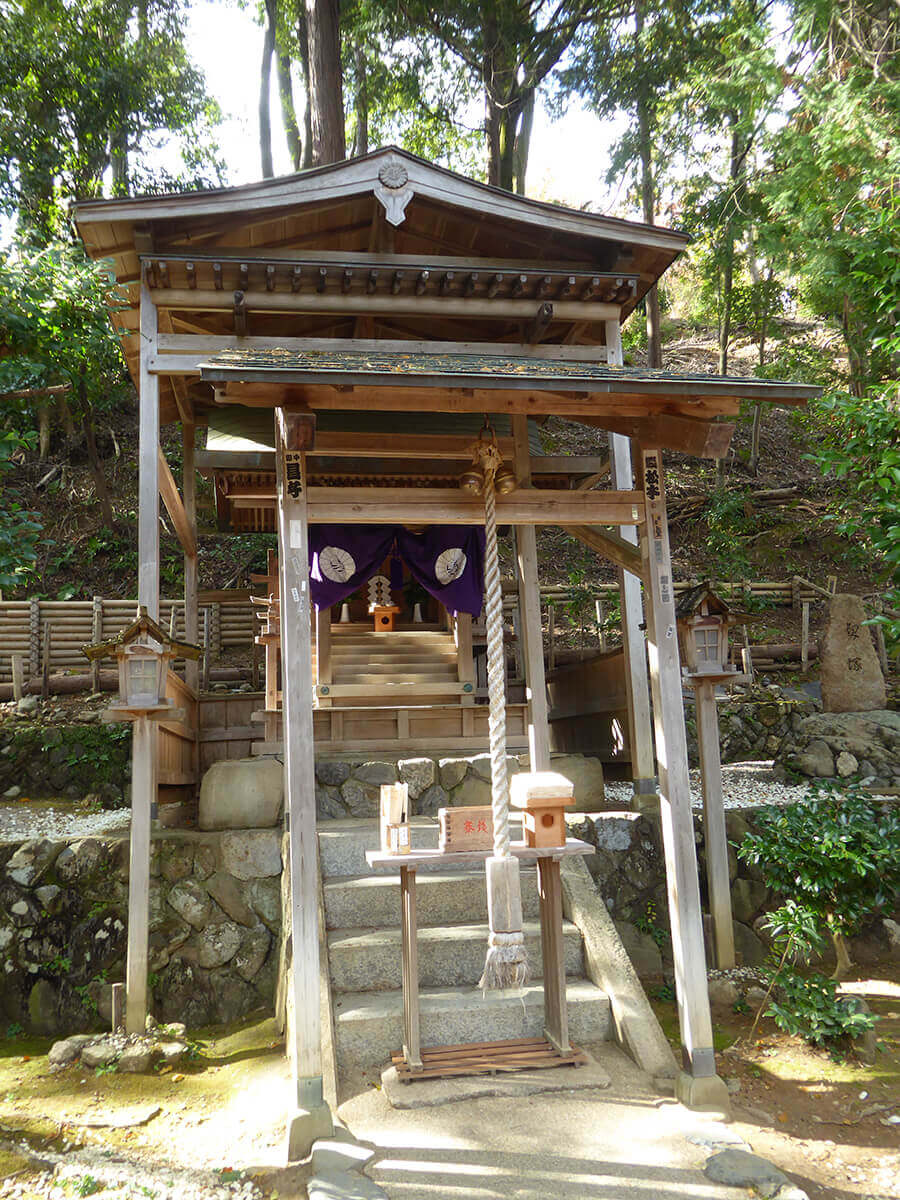
Mikami Shrine
Also, the shrine's piece tag states, "Hair is a beautiful natural crown given to us by the god of creation at the highest level of the human body. ...... Hair is the crown of nature.
In Japan, hair has long been considered sacred, as it is connected to the gods. Hair is a person's alter ego, and thoughts and power reside in the hair.It is also said that Hair was also used to make wishes. The modern custom of "baby brushes" is probably a remnant of this practice. A brush made from a baby's embryonic hair is left behind as a birth memorial to pray for the child's clear-headedness, longevity, and good health.
It seems that both ancient and modern people have not changed in their sense of treasuring and mystifying their hair. We always visit the shrine when we take a stroll along Saga Road.
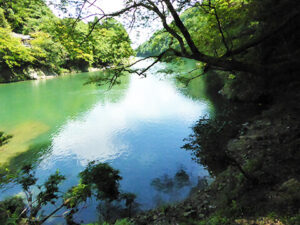
A lonely place outside of Kyoto where foxes, raccoon dogs, and ghosts dwell when the sun goes down
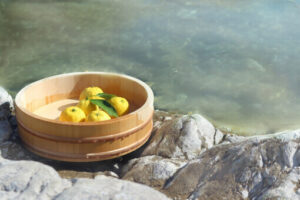
What is there to see in the mountain village that stretches behind Arashiyama?
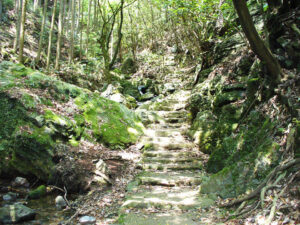
To the place where all who entered Mt. Atago performed misogi.

It still comes out! Urban Legend of the Tunnel in Ky.
Tradition that exists everywhere in the city of Kyoto. It is not just a picture, it is secretly alive in this modern age and continues to coexist with people. The two of Office TO, who previously wrote a series of articles "Kyoto's Demon World Exploration" in the monthly magazine Leaf, explore the mysterious "different" world of Kyoto, which was created over 1200 years. I will unravel the story while actually visiting the place. .
 News
News Feature article
Feature article Featured event
Featured event